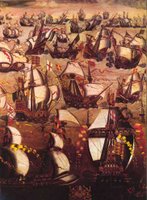Greenery and friendliness in a furnace - Sudan


There is a saying, ‘Sudan huwa Sudan’ (Sudan is Sudan) and in this land of extremes the meaning becomes clearer every day. It is difficult, in a country that is ten times the size of Britain, with the same mileage of metalled as the county of Kent, to see how it could ever change.
Electricity is here; running water is here. I write from the middle of Gezira Province, the most developed, most cultivated, most populous region outside Khartoum and Omdurman, those neighbours astride the Nile.
But in a country that spans the distance from Aberdeen to Gibraltar conditions here can have little or no impact on those who live in Darfur in the north east, or Jonglei in the south. Combined with the spatial element to inhibit change are the climate, tradition and Islam.
In a land which houses upwards of 500 different tribes – ranging from the Dinka, giants up to 7ft 6inches in height, and charcoal black in colour, in the south, to the Donagla whose skin colour is as light as a holidayed Lancastrian, in the north, the forces of tradition and Islam are probably the only unifying elements.
Contact between many people is virtually non-existent, and when you realize that a person in Edinburgh may be exposed to the same information as someone in Liverpool or Lyme Regis, it is difficult to imagine the remoteness of Sudanese life.
Of course, there is both radio and television, but successful contact depends on the presence of receivers which need a power source, and as such conditions are unreliable at best any influence of the Khartoum centred media can only be limited.
The forces of tradition and religion – Islam in the north, Christianity in the south – constitute the status quo. In the provinces (things are difficult in the capital) the dominant form of correct behaviour and decorum is that which is hospitable, neighbourly, modest and honest. This stems in part from Islam and the teachings of the prophet Mohammed (PBUH) and in part from the way in which the Sudanese live from day to day.
A meal in the Sudan is something to be shared with others. Family and friends eat from the same bowl using the fingers of the right hand only. Pieces of bread aid the removal of food from the communal bowl.
In the hot, sultry evenings, groups of men sit and talk, chew tobacco, and perhaps drink glasses of chi (tea), strong and very sweet. The evenings afford only a slight respite from the heat of the day, and indeed, on my arrival in Khartoum I found the evenings more oppressive than the blazing afternoon sun.
Then there is the haboob (strong diurnal wind) which can blow up at a very short notice from a pleasant zephyr to a full blown gale that can render the opposition’s goal posts invisible at a local football match. Such an event is sure to be the forerunner to a Sudanese rainstorm. Thunder and lightning, the like of which I had never seen, herald a torrential downpour which can end almost as abruptly as it arrives.
Pools of water engulf villages and make lengthy detours a necessity. Similarly, roads between the major towns become impassable for days.. These storms occur only in autumn, and in a land where the on reliable water supply is that provided by the mighty Nile, rain is gratefully received.
In Gezira Province, an area renowned for its fine cotton, the waters of the Nile, both Blue and White, are put to good use. The countryside is crisscrossed with irrigation ditches and canals, and the cotton, sorghum and gamh (wheat) flourish.
An interesting by-product of the irrigation canals is the enjoyment that they provide for the students of El Messelemiya Higher Secondary School for Boys when they finish their lessons at 2.0pm. On hot days, the school bus takes them laughing and shouting to the canal where they swim until the early evening. They politely invited me to go with them and were amused when I expressed fears for my health.
I was assured that there were no crocodiles or snakes to eat me up and they only laughed the more when I explained that I would probably catch dysentery or bilharzia, a disease which infects the urinary passages and is caught from a type of worm that lives in these brackish, brown waters, and which is so pervasive in the Gezira.
Frogs - thousands of them - are the only other noticeable feature of the irrigation scheme – for me at any rate. In the warm evenings, conversation is all but drowned by their croaking. Like the constant roar of traffic in a big city, I soon learn to ignore the noise and raise my voice in compensation. Similarly, I have learned to live with the lizards and bats which share my house – which I now regard as my main allies against the only bane of my life here, the insect kingdom.
Since the average Sudanese has skin like leather, while mine is like the proverbial baby’s bottom in comparison, I have become a fly’s version of unwrapped food; my mosquito net is worth a king’s ransom. There are compensations: little or no traffic where in Live (the odd donkey is ridden past my door in the morning, the total absence of anything remotely resembling a hurry and the warmth and hospitality of the Sudanese people. Gezira is indeed a green and pleasant land.
Robert L. Fielding, a teacher from Oldham, is now on the staff of a school in Sudan. Here are his first impressions of the Sudanese way of life.
Oldham Evening Chronicle
September 3rd 1987




